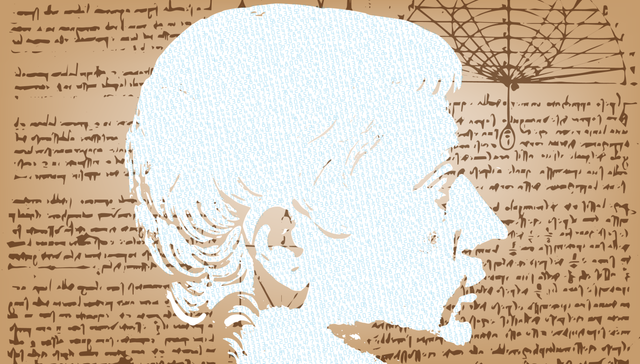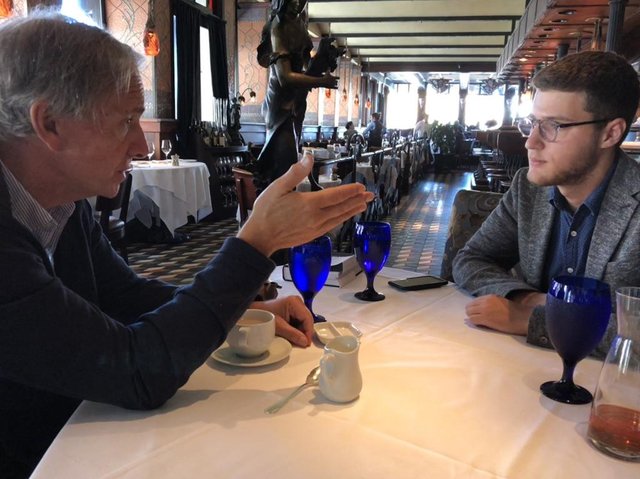Artificial intelligence is about the people, not the machines

takes money to make money, and at present much of this money goes to the development of artificial intelligence.
From hedge funds to venture capital firms, everyone in funding has an idea of how data and quantitative analysis will transform their industry. Companies, such as SignalFire, make railway technology from one company to another to draw attention to increasing starts. And funds like Numerai and Quantopian trusted in quants to determine optimal business strategies.
Bridgewater Associates, one of the world's most robust and reliable silver making machines, is even trying to automate its internal management processes to ensure the longevity of its $ 150 billion under management. But unlike most other approaches to the application of AI to money creation, Bridgewaters tactics does not affect the recognition of anomaly, it is mechanization.
They were people before AI
To understand Bridgewater, you must understand Ray Dalio. For Dalio, the broken leaders and the excess of emotions are the enemy. The success comes from an organized set of rules that refers to the principles in his book of the same title.
The field of behavioral economics is devoted to studying the myriad possibilities of how psychology and neurosciences influence decision-making. Traditional economics make fundamental assumptions about human rationality, but research in the behavioral economy has shown us that people tend to make very strange things outside the homo-economic paradigm.
There are hundreds of known cognitive prejudices - confirmation of prejudices (we often see only information that confirm our previous assumptions), hyperbolic discounts (we are very bad in judging things compared to time) and the effect of train (we lay too much importance on herd behavior).
Dalio says the rules help him to notice his prejudices and explain them. Whenever it is convinced, it is contrary to what a computer model indicates that invites reflections that can help solve the dispute and lead to a better result.
The key is to make sure you do not overcompensate your own emotions or something simply because a computer tells you. No number of algorithms can completely isolate a person from prejudice, but they can help in the formation of discipline and habit.
This will be about people after the AI
Decades ago, Dalio said that he would write his criteria to make a trade and then work to see if these criteria could be converted into an algorithm.
"If I think strongly, I can transform qualitative problems into quantitative problems," said Dalio. "I ordered a cobb salad, if I could slow down, I would write my criteria for a cobb salad - a qualitative judgment that I loved a cobb salad."
This expert system approach is antithetical to current concepts of in-depth learning, whereby a machine learning model is formed over massive amounts of data to achieve an inductance-based conclusion.
"I do not like to learn the term machine because what I do is not learn," said Dalio.
The distinction may seem small, but it is far from it. Many of the machine learning models used today work like black boxes - typing data and conclusions are spat. If you want to ask what drives the model to reach these conclusions, you will not find a paper trail.
"When a machine suggests an algorithm and you do not have a deep understanding of the cause-and-effect relationship, things are very dangerous," Dalio explained. "If the future is different from the past, you're probably going to crash."
Most data scientists today agree that it is important to have a domain experience on the problem you are trying to solve before you start learning. This is important so that, say, weed plumage robots do not interfere with the morning dew, they have never been considered. Or, in the case of Bridgewater, understanding is important to ensure that decisions are not made without an anchor for reality.
For this reason, Dalio believes that the future of artificial intelligence depends on people. In his book, he notes that the day when a computer usually surpasses a person without human help is far away.

The key is understanding
Dalio believes that today's artificial intelligence is divided into three categories: imitation, data mining and expert systems. Imitation refers to easily reproducible tasks, which means that understanding is not necessary. One characteristic of these problems is that they occur in worlds unlikely to change.
Data Mining opens the door to a wider set of problems. Although it is not the concept of the day, Dalio refers to an in-depth learning where large amounts of information can be applied to solve specific problems.
The last approach, expert systems, is Dalio's predilection if he wants to ensure understanding. These algorithmic rules, derived from so-called "experts" are fragile and are widely used for the current problems of object recognition and dialogue systems, but may require a value when the deductive and inductive thinking is not required.
The decision to reject someone is, for example, an extremely complex task for which data can often not be taken into consideration. When Bobby Axelrod Dalio channel for a brief moment, in the draft bill of television Law said: ". There is a small group that can perform calculations" There is even a smaller group who can l 'explain, but those who can do both. .. they become billionaires. "
If you try to force, that is, rely on calculations, if you do not understand, you run the risk of flying too close to the sun. Dalio gave the example of the merger arbitration to explain how these scenarios are realized.
In merger arbitrage, a fund buys shares in the acquired company and reduces the acquisition of the company. But the strategy can be reversed if too many people offer the price so that an informed investor is better off doing the opposite. (See What is 2/3 the average in the literature on game theory for an interesting corollary here).
"It is understood that big recordings will be the creator of the difference," added Dalio. "But the best idea is to have someone who can translate words into algorithms. If you can, you've hit the giants."
Dalio's expert system approach may be outdated, and the less we forget this in-depth learning and most of the remaining AI is also dated. We have no reason to believe that neural networks are the solution to recreational intelligence. Therefore, we should accept that there are a number of techniques that can be found in different contexts.
Do what you want to invest from Dalio's opportunity, or guide or even the AI, but he's certainly right about one thing: pretending that domain experience does not matter in the science of data is a mistake. This is true regardless of the machine learning approach, no matter if the problem needs to be addressed.

@drmor Thank you for your work, I invite you to evaluate my work.
Thanks you welcome